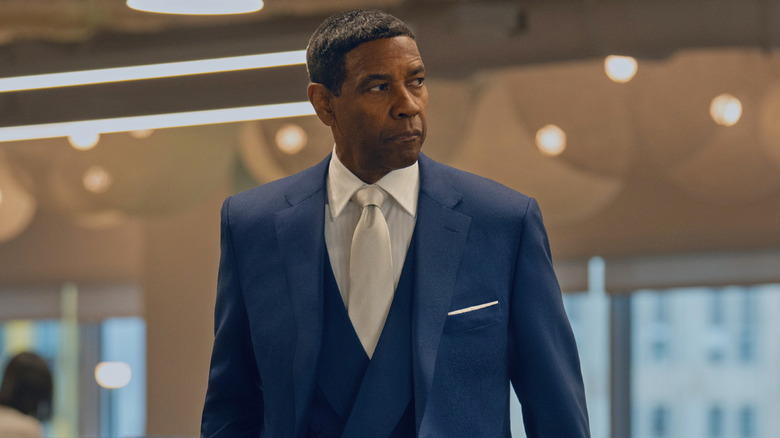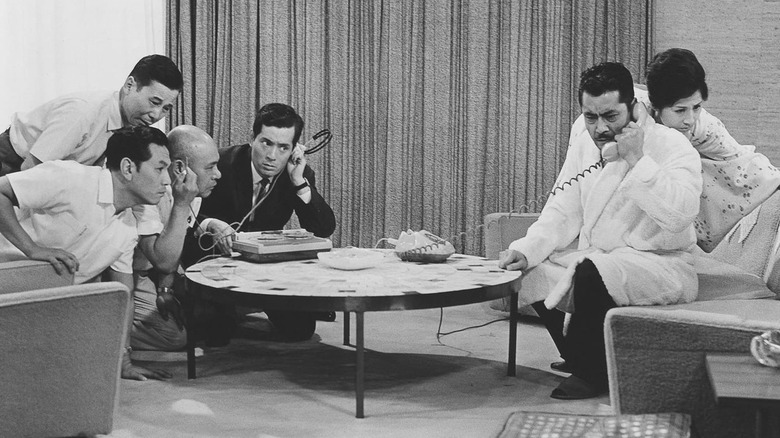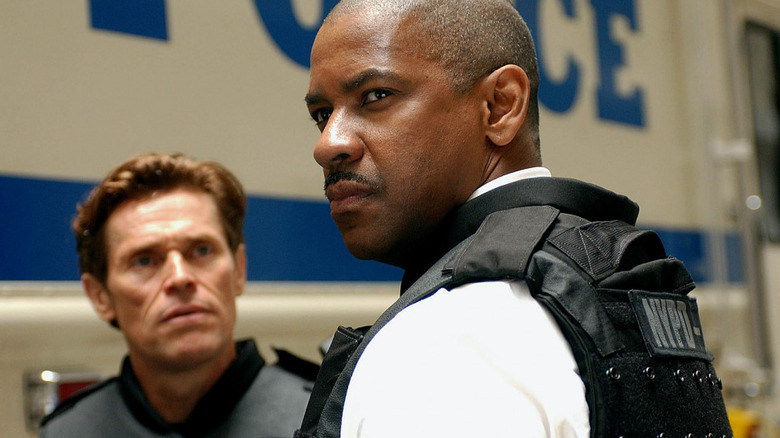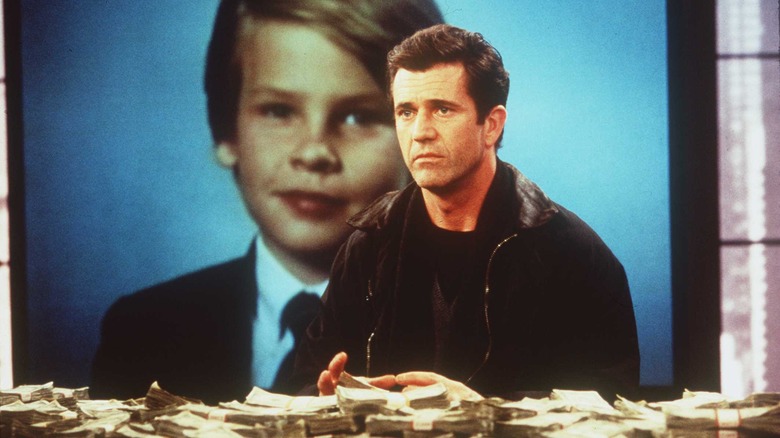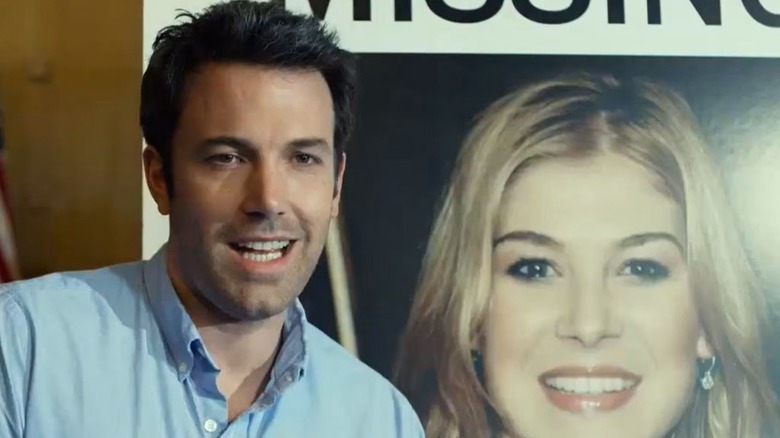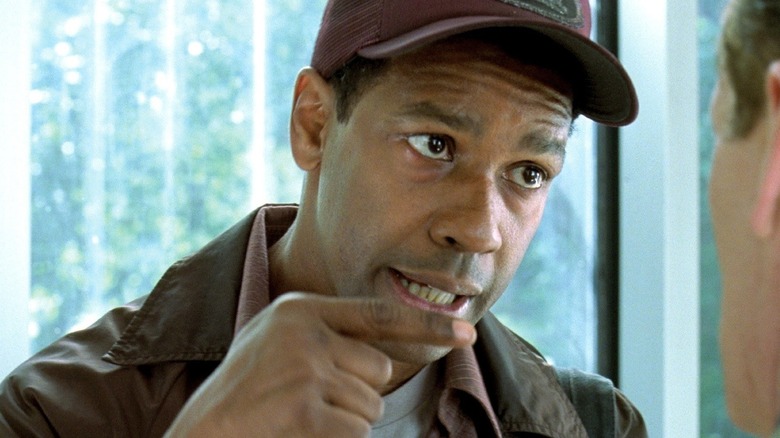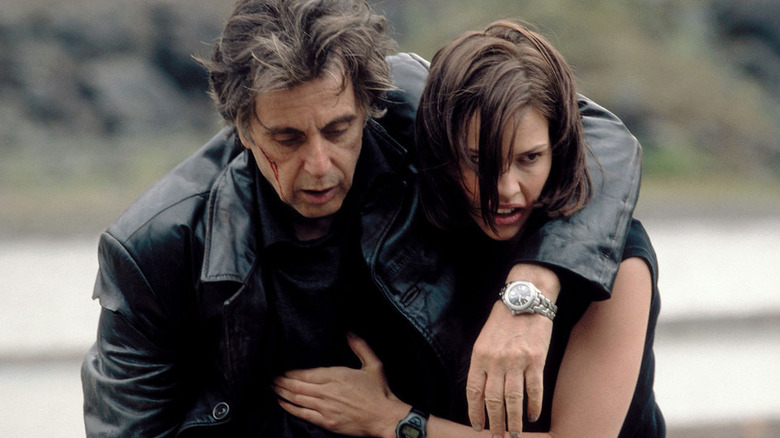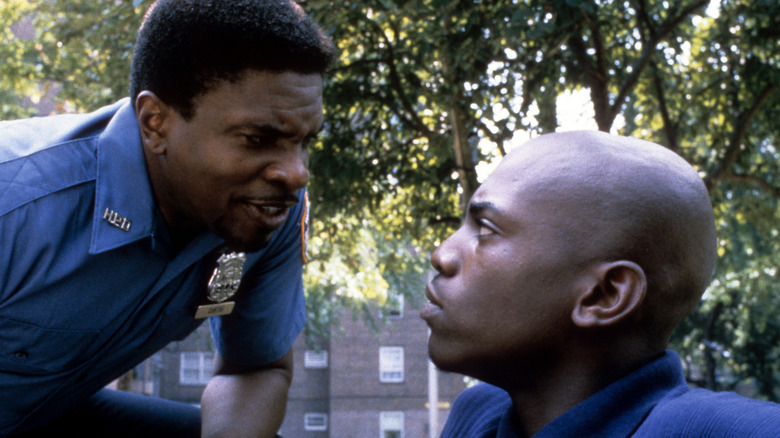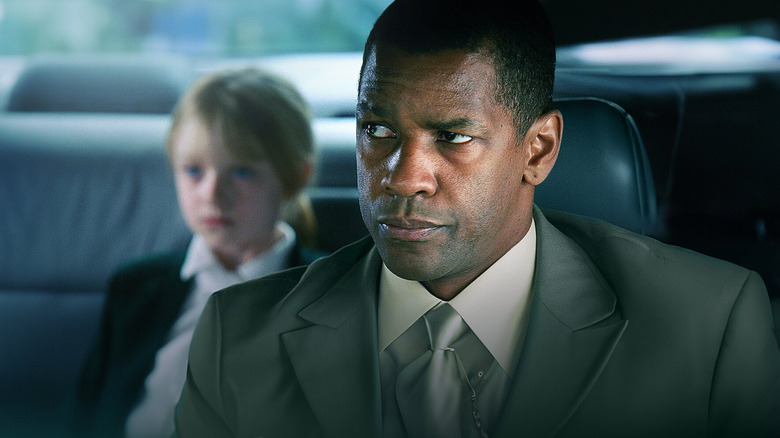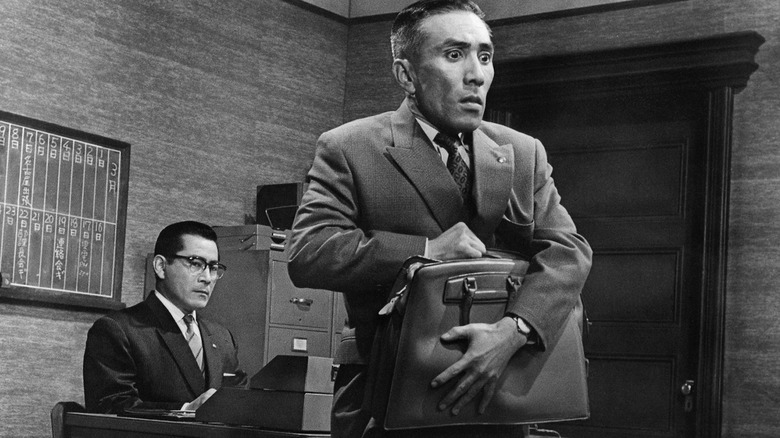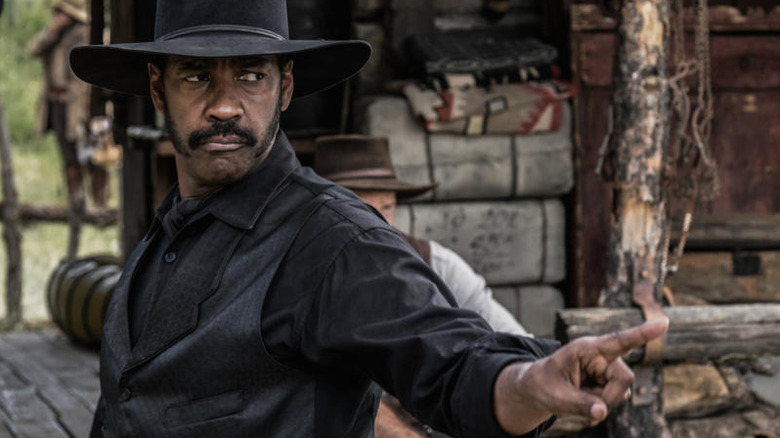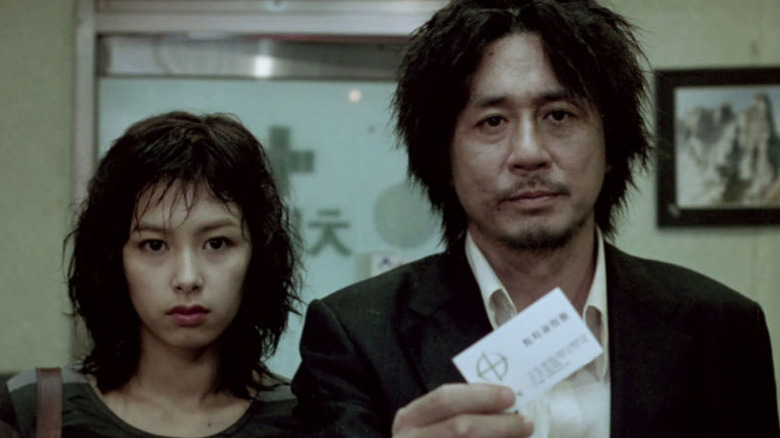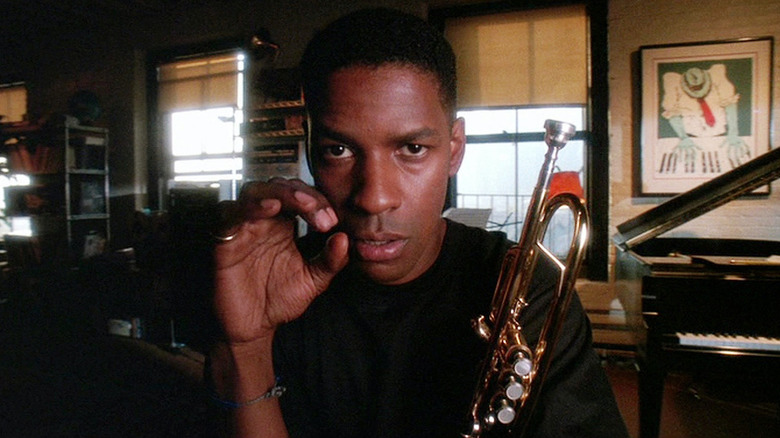12 Best Movies Like Highest 2 Lowest
Even though they've only made five films together over their decades-long careers, filmmaker Spike Lee and actor Denzel Washington still somehow feel like frequent collaborators. This could be due to the fact that they were key figures in each other's rise to fame, and always seem to bring out the best in each other. In fact, Lee has called the Hollywood veteran the greatest actor alive, and Washington has also been frequently effusive with praise for Lee's filmmaking talents.
"Highest 2 Lowest," the latest Spike Lee joint to star Washington, marks their first pairing in almost 20 years. Not surprisingly, the result was yet another critically-acclaimed entry for their respective filmographies, and further proof of just how good the duo are together. Washington plays David King, an incredibly powerful and wealthy music industry executive. He's so rich, in fact, that someone tries to kidnap his son to earn a nice big ransom payout. But several twists make the movie anything but your basic kidnapping thriller, from mistaken identities to uncovered secrets to a race for morally ambiguous revenge that stretches all across New York City.
All of that allows for a variety of films that we can recommend to fans of "Highest 2 Lowest" looking for similar themes, including a few more that involve the formidable creative talents of Lee and Washington, both together and separately.
High and Low
To kick things off, the most obvious movie people should watch after "Highest 2 Lowest" is Akira Kurosawa's "High and Low." And no, it's not just because they have similar titles — they are actually both based on the same book, "King's Ransom," by Evan Hunter. Not only that, but the fact that Spike Lee titled his movie more like "High and Low" rather than call it "King's Ransom" should also clue you into the fact that "Highest 2 Lowest" is specifically meant to be a reimagining of Kurosawa's 1963 movie.
It might be easy to assume that this is a movie remake that's way different from the original. But the two films have a lot in common, from their basic plots — a wealthy businessman's son is targeted for kidnapping, only for those plans to go awry and spiral into revenge — to what each has to say about wealth inequality and how people in positions of power are able to get away with a lot more than those that are not.
Of course, there are differences between the movies, owing not only to their respective countries of origin but also just because they were made over 60 years apart. That being said, Kurosawa movies tend to age remarkably well, so don't be surprised if "High and Low" isn't nearly as difficult to watch as you might expect, given its age and it being in black and white.
Inside Man
The last film that Spike Lee and Denzel Washington made together before "Highest 2 Lowest" was the crime thriller "Inside Man" way back in 2006. That alone is almost reason enough to watch the two movies together as a fascinating double feature. But as it turns out, the two films that bookended their lengthy hiatus from collaborating have more in common that their historical significance.
Like "Highest 2 Lowest," "Inside Man" is a movie about hostages, negotiations, and the moral gray area that must be entered in order to do what is deemed the "right thing" by the respective protagonists of the two films. However, the hostage situation in "Inside Man" is the result of an attempt to rob a bank. Washington plays the NYPD detective that is charged with taking the lead on negotiating the release of the bank customers and employees who are taken hostage during the heist.
It might sound like cliched, by-the-numbers stuff, but "Inside Man" is elevated by both Washington's performance and Lee's craft behind the camera. It also remains Lee's highest-grossing movie to date. There was an "Inside Man" sequel you probably missed released in 2019, but you're better off just pretending you never heard of it.
Ransom
Tying a bit more directly to "Highest 2 Lowest," at least on the surface, is Ron Howard's 1996 film "Ransom." It also centers on a rich person whose family is the target of kidnappers looking for a big cash payout, and sees that rich person go on an action-packed quest for vengeance when things veer off in a different direction. Said rich person, Tom Mullen (Mel Gibson), is also revealed to perhaps not have the cleanest of hands when it comes to his position as a powerful businessman — and that skirting of the line between good and iffy serves him well when he has to do questionable things to get his son back.
Beyond those similarities, "Ransom" does end up playing out as a much more traditional action revenge thriller than "Highest 2 Lowest," and certainly doesn't ask as many complicated questions nor dig as deeply into its characters. However, one of the great things about "Highest 2 Lowest" is that it still works just as well as that type of crowd-pleasing blockbuster if that's all people want to get out of it and don't want to bother with all that other stuff. "Ransom" just doesn't have that other stuff to begin with, but does its thing perfectly well.
Gone Girl
Nick Dunne's (Ben Affleck) wife Anne (Rosamund Pike) vanishes, which turns into a media circus due to the fact that she's famously the inspiration for her parents' popular series of children's books. It isn't exactly a spoiler to say that the disappearance isn't all its presented to be, and that Nick seems suspiciously nonplussed that his wife is missing. But to say anything more about the many shocking twists and turns in "Gone Girl" would be to ruin what makes it such a compelling watch, and why it was on almost every critics' top 10 list for 2014.
Like "Highest 2 Lowest," the kidnapping/disappearance that is the initial crux of "Gone Girl" is soon revealed to be a smokescreen for what the movie is really going to be about. The two films are also similar in that the various key figures in the story are shown to not be the victims nor the innocents that we thought they were, with "Gone Girl" taking that much further by making you question whether anyone in the movie is actually a decent person. Don't be surprised if you find yourself borderline disgusted when the person you were previously rooting for is morally exonerated in the end.
John Q.
"John Q." sees Denzel Washington, in the title role, play almost the opposite of his "Highest 2 Lowest" character — primarily because in "John Q.," he's the one taking hostages. Of course, that is an oversimplification of John Quincy Archibald's actions in the film. He doesn't take a hospital emergency room hostage for monetary gain for selfish purposes — he does it because it's the only way to get his son a life-saving heart transplant when he and his wife can't come up with the $75,000 down payment required to even get his son on the transplant list.
While there are some genuinely surprising twists along the way, "John Q." ultimately plays out much like you'd expect a movie like this to play out. It also isn't a huge shock that it has a feel-good ending that is perhaps wrapped up a bit too neatly and doesn't challenge the actions of its flawed protagonist nearly as much as it should. But once again, Washington's dynamite performance more than compensates for all the ways in which the movie takes the easy way out or doesn't try hard enough to avoid cliches, making "John Q." well worth watching.
Insomnia
Among the many questions asked by "Highest 2 Lowest," one of the biggest is, "When is it okay to break the rules in the service of doing what is objectively the right thing?" That question serves as the primary conflict of "Insomnia," director Christopher Nolan's most underrated film and home to Robin Williams's best dramatic acting performance outside of "Good Will Hunting." In this case, the rule-breaking in question is being considered by a police officer.
It might seem easy enough to default to being automatically against law enforcement breaking the rules. But "Insomnia" does a commendable job of actually forcing audiences to reconsider that stance, as detectives Will Dormer (Al Pacino) and Ellie Burr (Hillary Swank) are faced with that dilemma in the name of catching a violent predator (Williams). The fact that Dormer has already broken rules for less noble purposes only serves to complicate what he and Burr are faced with potentially having to do to bring the predator to justice.
Clockers
Among Spike Lee's expansive filmography, the iconic director has some underrated movies that get unfairly lost in the shuffle. And of those lesser-celebrated Spike Lee joints, "Clockers" is probably the one that least deserves to be on that list. While there is certainly value to recommending any of a director's overlooked gems after enjoying a film from that director, "Clockers" is also a relevant companion piece to "Highest 2 Lowest" because it's another of Lee's crime dramas, a genre which he has only worked in a handful of times.
Also based on a novel (by author and screenwriter Richard Price) and also set in New York City, "Clockers" sees small time criminal Strike (Mekhi Phifer) get embroiled in big time accusations. What unfolds is a story about family loyalty, mistrust of law enforcement, and the complicated hierarchies that exist within gang culture. Originally meant to be a reteaming of Price and director Martin Scorsese, who previously made "The Color of Money" together, Lee stepped up to direct "Clockers" — and also retool Price's script — after Scorsese vacated the position. Scorsese did, however, stay on board as a producer.
So what did Scorsese direct instead of "Clockers?" He helmed "Casino" which, ironically, would go on to be his "Clockers" — that is to say, an unfairly overlooked 1995 crime drama that doesn't get the acclaim it deserves.
Man on Fire
There is another director that Denzel Washington has worked with five times, and whom Washington also credits as playing a significant role in the ascendance of his film career. That director is the late Tony Scott, who directed Washington in "Crimson Tide," "Man on Fire," "Déjà Vu," "The Taking of Pelham 123" (the 2009 remake), and "Unstoppable," the last three of which would comprise Scott's final three films prior to his death. But in connecting things with "Highest 2 Lowest," the Tony Scott/Denzel Washington collaboration to recommend is 2004's "Man on Fire," their sophomore film together.
"Man on Fire" also sees Washington play a character that is drawn into a violent revenge mission following a kidnapping. In this case, he's John Creasy, retired FBI agent-turned-bodyguard who is hired to prevent the kidnapping of the daughter (Dakota Fanning) of a powerful auto industry executive. After failing at that mission, Creasy takes it upon himself to find and rescue the girl, no matter what it takes.
Washington doesn't always get the credit he deserves for his ability to be a top-notch action star, and he did some of his best work in that arena under the direction of Scott. To be sure, "Man on Fire" isn't the overall best Tony Scott-directed Denzel Washington action movie — that honor arguably belongs to either "Crimson Tide" or "Unstoppable" — but it's still a very good one, and is the most similar to "Highest 2 Lowest."
The Bad Sleep Well
Maybe you already watched "High and Low" and are now looking for more movies directed by this Akira Kurosawa guy that you've always heard so much about. Well, there are no truly bad Kurosawa movies, so it's hard to go wrong with almost any film of his that you choose. But what about movies that more specifically line up with "High and Low"/"Highest 2 Lowest"? Pulling on that thread will bring you to "The Bad Sleep Well."
Not only did we put it above "High and Low" on our ranking of every Akira Kurosawa movie, but "The Bad Sleep Well" is "High and Low"-adjacent in that it too is about how often people in positions of power in the business world are not the best people. There is also a revenge story that springs up from that angle in the name of exposing corporate corruption. Kurosawa is your favorite director's favorite director, and his movies inspired many of your favorite movies. Francis Ford Coppola speaks highly of "The Bad Sleep Well" in particular, and credits it for several of the directorial choices he made on "The Godfather."
The Magnificent Seven (2016)
Speaking of Akira Kurosawa and Denzel Washington, "Highest 2 Lowest" actually wasn't Washington's first time starring in a remake of one of the director's movie. But the previous example of that is actually a remake of a remake of a Kurosawa movie. Washington appeared as one of the titular members of "The Magnificent Seven" in 2016, a remake of the iconic 1960 Western of the same name. And that 1960 Western was already a remake of Kurosawa's earlier "Seven Samurai."
The original "The Magnificent Seven" is better than the remake, and both it and "Seven Samurai" are essential viewing for anyone looking to watch some of the most acclaimed films in the history of the medium. But 2016's "The Magnificent Seven" is actually pretty solid in its own right, and is a perfectly acceptable way to dip one's toes into an eventual viewing of the other two movies with a more modern, more briskly-paced take on the classic story. As usual, Washington's performance deserves a lot of the credit for that — and it's too bad it is thus far his only appearance in a Western since he's, not surprisingly, a natural.
Oldboy (2003)
"Highest 2 Lowest" is actually Spike Lee's second remake. His first was "Oldboy," his 2013 English-language version of the 2003 South Korean film of the same name. Unfortunately, that one didn't fare nearly as well critically as "Highest 2 Lowest." There are a number of big differences between the original and Lee's remake, but the one that matters most is that only the original is essential viewing. Lee's version is only for completists of his work, or huge fans of the original who are morbidly curious.
If you aren't a huge fan of 2003's "Oldboy," that's probably only because you haven't seen it — and you should. It actually has more in common with "Highest 2 Lowest," in that it's another tale of false imprisonment followed by spectacular revenge. A man named Oh Dae-su (Choi Min-sik) is grabbed off the street one day and locked in a windowless room without any human contact whatsoever for 15 years. His sudden release is just as unexplained as his initial imprisonment, and he makes it his mission to find out who kidnapped him, and why — something his captors are not only expecting, but have actually already orchestrated in ways the audience never sees coming.
Mo' Better Blues
Much was made in the promotion of "Highest 2 Lowest" about how it was the big reunion for Spike Lee and Denzel Washington. Lee had also made the proclamation during the movie's press cycle that it would be the last time he'd ever direct Washington, but he's since walked that back and is now taking the stance of "never say never" about future collaborations. Either way, "Highest 2 Lowest" definitely feels like a "full circle" moment in the duo's creative history together.
So why not follow up a viewing of their possible last movie together with a viewing of their first one as both actor and director as well as co-stars? That movie is "Mo' Better Blues," Lee's 1990 musical dramedy about jazzman Bleek Gilliam (Washington), a musician going through a period of both personal and professional struggle. Lee plays Giant, the manager of Bleek's band. Though Lee also played a supporting role in "Malcolm X" opposite Washington, "Mo' Better Blues" marks the most shared screen time between the two actors by a mile.
Apart from the way it might ultimately serve as the first half of the Lee/Washington collaboration bookend with "Highest 2 Lowest," "Mo' Better Blues" is also just a great film on its own, and a wonderful time capsule of two rising talents who were just beginning to take Hollywood by storm.
